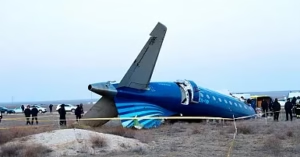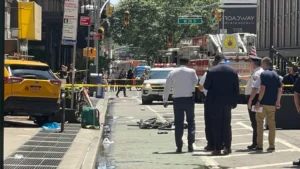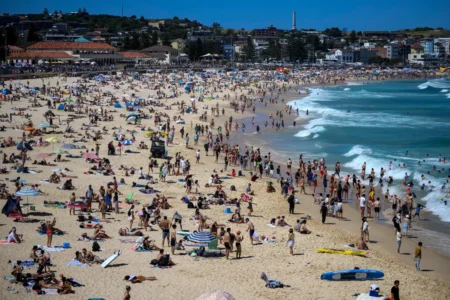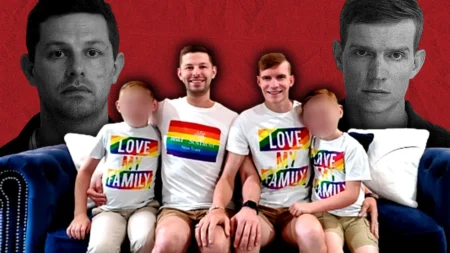A pro-Palestine protest in Amsterdam descended into chaos after violence linked to a football match between Maccabi Tel Aviv and Ajax led to multiple arrests and citywide tension.
Amsterdam authorities banned all demonstrations over the weekend following the clashes, citing public safety concerns.
The unrest began on Thursday night when fans of the Israeli club Maccabi Tel Aviv reportedly ripped down a Palestinian flag and chanted anti-Arab slogans while heading to the stadium.
Tensions quickly escalated, leading to clashes that targeted Maccabi Tel Aviv fans and involved what Mayor Femke Halsema described as “scooter hit-and-runs.” The violence left five people hospitalised and resulted in 62 arrests as authorities struggled to maintain control of the situation.

Mayor Halsema condemned the attacks as anti-Semitic and took steps to restrict protests throughout Amsterdam.
Clashes continued into Friday, with further altercations involving football fans and protesters. Footage circulating on social media shows a Maccabi Tel Aviv supporter crouching on the ground, pleading with a protester who accuses him of supporting violence against Palestinian children.

The scene was further inflamed when Maccabi supporters disrupted a moment of silence for victims of the recent Valencia floods, intensifying the anger among local Ajax fans.
By Sunday, Amsterdam police were forced to take action as defiant protesters gathered in Dam Square, chanting “Free Palestine” and “Amsterdam says no to genocide.” Roughly 20 people were detained after refusing to comply with the protest ban, which was upheld by a judge when protest organisers attempted to secure an injunction. The protest ban is expected to remain in effect until next Thursday.

Following these events, Amsterdam authorities have launched an investigation into alleged online calls for attacks on Jewish residents. Senior Amsterdam police official Olivier Dutilh reported that individuals perceived to be Jewish were targeted in several incidents, including being forced out of taxis or asked for identification to verify their nationality.
Israel’s Foreign Minister Gideon Saar, meeting with Dutch Prime Minister Dick Schoof, condemned the incidents, calling them reminiscent of “dark periods in history.”
This surge of unrest comes amid renewed tension over the Gaza conflict. A ceasefire and hostage exchange deal appear uncertain as Qatar, a key mediator, has withdrawn from negotiations.
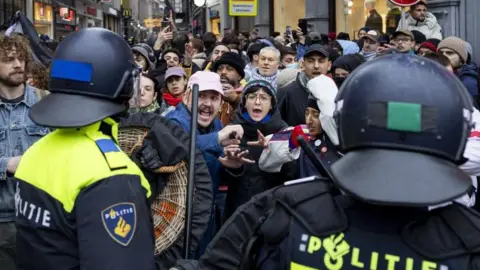
Qatar reportedly informed both Israel and Hamas that it could no longer act as a mediator without good-faith efforts from both sides. The breakdown in talks has cast doubt over the safety of hostages, including British national Emily Damari, who was kidnapped by Hamas militants more than a year ago.
Meanwhile, Israeli airstrikes in Gaza have reportedly killed over 43,500 people, according to Palestinian health officials, with the UN estimating that 70% of the casualties are women and children—a figure Israel disputes. The strikes followed an October 7 Hamas attack that killed 1,200 Israelis and resulted in the kidnapping of around 250 hostages.
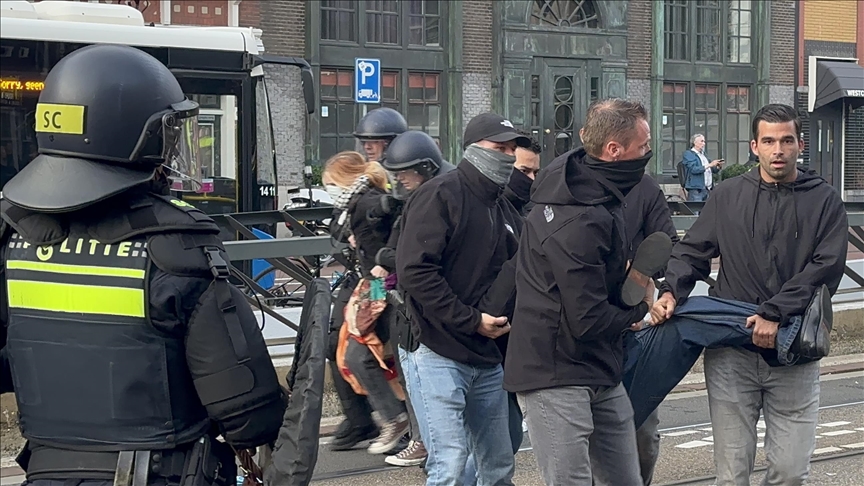
As Amsterdam grapples with these events, authorities have reiterated that the protest ban will remain in place throughout the week, hoping to prevent further violence in the days ahead.



